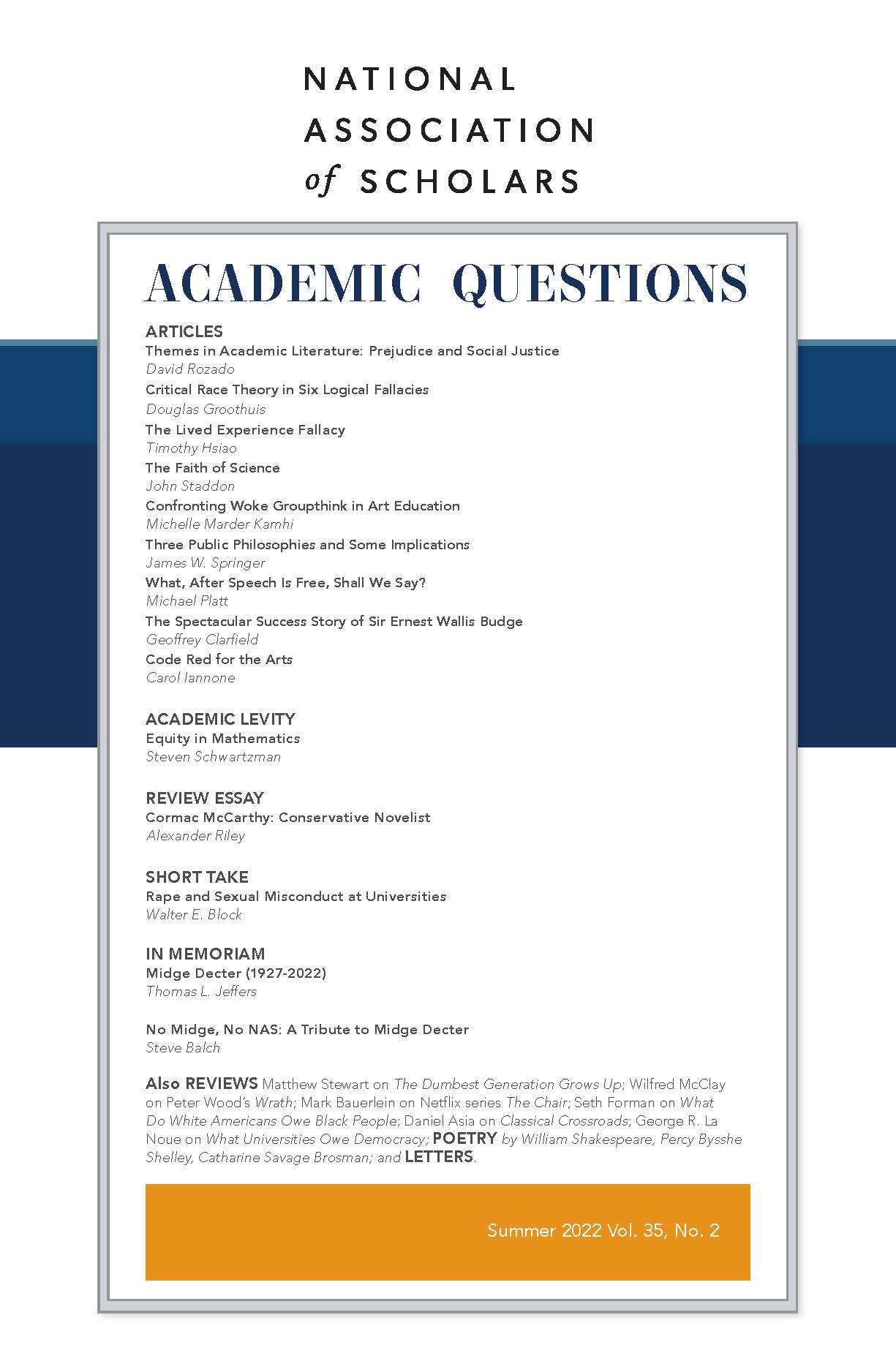Steve Balch was the Founding President of the National Association of Scholars; [email protected].
Midge Decter was the godmother of the National Association of Scholars. And, in a way, mine as well. Without Midge there would be no NAS. Without Midge I wouldn’t be what I am.
I clearly remember my first meeting with her in the offices—a converted Manhattan flat—of The Committee for the Free World. As a subscriber to the committee’s newsletter, I thought she might help me in a plan I had hatched to assemble a group of professors in and around New York City to somehow fight back against the growing influence of the campus left. As an “activist” I was completely wet behind the ears, hardly knowing where to begin. Midge gave me indispensable encouragement and set me on the path the NAS has been following since. That meeting was the NAS’s true birthday and a second one for me professionally and, in some sense, even personally.
On the purely practical side she couldn’t have done more for my project. The committee for the Free World’s mailing list contained an academic subset which was equivalent to a map of needles in a haystack. I personally knew of four or five “conservative” professors at John Jay College where I taught, but scores more were necessary to get anything serious underway. Midge’s list contained hundreds of possibilities. Searching through it produced the entirety of the fledging organization’s inner circle: Herb London, Peter Shaw, Barry Gross (all now gone), and Carol Iannone and Nelson Ong (still happily with us). Without its leads there would have been no way for the NAS to gather itself. No Midge no NAS.
But as those with long memories will recall, it wasn’t yet NAS. We dubbed ourselves something more in tune with the name of Midge’s group: Campus Coalition for Democracy. We saw our battle as a front in a larger war, with not just academe, but American and Western civilization in the balance. Becoming the NAS involved a refocus not a reorientation. To paraphrase the NAS’s motto, preserving a free society required the preservation of reasoned discourse in academe. In becoming the NAS we announced this to be our special job. Yet we never ceased standing shoulder to shoulder with Midge in the larger cause that had first drawn me to her.
Midge opened countless doors for us during those early years, commending us to the leaders of foundations like Olin, Scaife, Bradley and Smith-Richardson, which provided us with lift-off funding and, for the most part, ongoing support today. They wouldn’t have helped us without Midge’s powerful endorsement. She saw in us, long before anyone else did, the potential to make a difference, and enabled us to capitalize on it.
She also provided good counsel in abundance. The first twenty-five years of our national conferences were modelled on those of the Committee for the Free World in format and periodicity. Many of the founding members of our board of advisors, like Irving and Bea Kristol, were her friends. So were many of the journalists who gave our advent sympathetic coverage. Her husband Norman Podhoretz invited Herb London and me to write an article in 1986 for Commentary magazine, “The Tenured Left,” that proclaimed our organization’s existence to a national audience. Like any good godmother, through thick and thin, Midge was always on hand with encouragement and well considered advice.
Though Midge was a public intellectual of national caliber, few who observed the NAS from the outside would have been aware of the extent to which she contributed to its flourishing. Yes, if they dug into our website deeply enough, they would have noticed her name for a four-year span on our board of directors, and for a much longer one on that of our board of advisors. In both cases it stood, one among many.
What they wouldn’t have realized was that she was “The One” among the many—the one to whom we owed our prosperity and very being. Recognition never mattered to her.
There are a multitude of capable leaders, but very few heroes. The latter don’t just serve a cause, they merge into it themselves, giving whatever they can irrespective of whether their contributions are noticed. Midge was such a hero, our hero, without whom we would have been stillborn, if born at all.
No Midge, No NAS.













